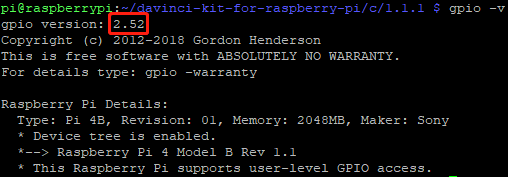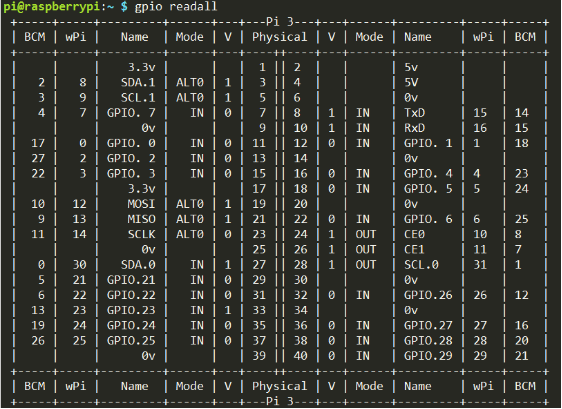Two important libraries are used in programming with Raspberry Pi, and they are wiringPi and RPi.GPIO. The Raspberry Pi OS image of Raspberry Pi installs them by default, so you can use them directly.
RPi.GPIO
If you are a Python user, you can program GPIOs with API provided by RPi.GPIO.
RPi.GPIO is a module to control Raspberry Pi GPIO channels. This package provides a class to control the GPIO on a Raspberry Pi. For examples and documents, visit http://sourceforge.net/p/raspberry-gpio-python/wiki/Home/
Test whether RPi.GPIO is installed or not, type in python:
python
In Python CLI, input “import RPi.GPIO”, If no error prompts, it means RPi.GPIO is installed.
import RPi.GPIO
If you want to quit python CLI, type in:
exit()
WiringPi
wiringPi is a C language GPIO library applied to the Raspberry Pi platform. It complies with GUN Lv3. The functions in wiringPi are similar to those in the wiring system of Arduino. They enable the users familiar with Arduino to use wiringPi more easily.
wiringPi includes lots of GPIO commands which enable you to control all kinds of interfaces on Raspberry Pi. You can test whether the wiringPi library is installed successfully or not by the following instructions.
gpio -v
Note:
If you are using Raspberry Pi 4B, but the GPIO version is 2.50, it will cause no response after the C language code is running, that is, GPIO pins do not work. At this time, you need to manually update to version 2.52, the update steps are as follows :
cd /tmp
wget https://project-downloads.drogon.net/wiringpi-latest.deb
sudo dpkg -i wiringpi-latest.debCheck with:
gpio -vand make sure it’s version 2.5
gpio readall
For more details about wiringPi, you can refer to: http://wiringpi.com/download-and-install/
